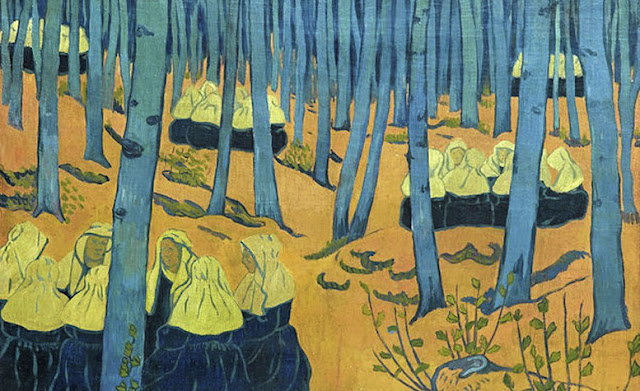Go out for a walk. It doesn’t have to be a romantic walk in the park, spring at its most spectacular moment, flowers and smells and outstanding poetical imagery smoothly transferring you into another world. It doesn’t have to be a walk during which you’ll have multiple life epiphanies and discover meanings no other brain ever managed to encounter.
— Albert Camus, Notebooks
Once when I was doing this, Jacob appeared with his lunch too, after some inconspicuous questions and a hopeful attempt of finding me within what is quite a large park. That was good.
Last week, I was listening to Charles Foster talk about the 'language' of killer whales as I walked, and how much richer, deeper and detailed it is compared to our speech:
"I’m often frustrated by the inability of my language to reflect the wonder of the world. I intuit that wonder, and then language tells me that I’m getting overexcited and I ought to calm down. But I prefer to trust the intuition. I know that propositions formulated in language can’t do the job. How can I possibly describe my love for my children, my outrage at the cruelty of men, the smell of a wood fire, or the sun on the back of a gull—let alone the dance of these things with one another?
We know from our everyday experience that words fall short of the splendor; that little of our real understanding is mediated through words; that most of what we get even from a formal lecture is subliminal (perhaps communicated by pheromones, or the interlocking of auras, or whatever)."
Later that day I was walking a far more road-side, noisy and dusty way to Little India, and listening to Robert Macfarlane talking about how language shapes our landscape, and vice-versa. His opinion of human language is more redemptive, :
"... poetry has been a huge force and presence in my life. The three poets who I met earliest were the three H’s. They were Ted Hughes, Seamus Heaney, and Gerard Manley Hopkins; and in a way, for that troika of poets, words have a kind of palp and a heft that is as strong as a pebble or a gale. And I was fascinated by writers who fought and sought to give to their language aspects of matter, and who sought to give to matter aspects of language."
Macfarlane specifically mentions the word smout, 'which means the hole in the bottom of a stone wall up in Cambria, which is left so that small creatures can move through it but sheep can’t get out' and its counterpart in Sussex: 'smeuse', which refers to 'a hole in the base of a hedgerow left by the movement of an animal. To get out of the museum, I sometimes walk through a little gap in the scrawny hedge by the car park, my own little smeuse. I suppose, in that case, I am the animal.


